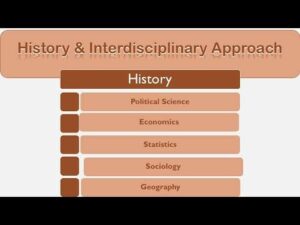Back to: Botany 500 Level
How far today, my ever-curious Afrilearn champ?
Omo, you don show again and that na real proof say your future bright no be small. Today, we go gist about something wey go help you understand where we dey come from and why your field of study connect to many others—Historical Overview and Interdisciplinary Relevance of ecology. Make you relax well, I go break am down like suya with onions.
Historical overview and interdisciplinary relevance
Make We First Talk the History Small
Ecology no just start today. The roots reach far back—even before people begin dey call am “ecology”. Long ago, our African ancestors dey observe nature, study how plants and animals dey behave, and live in harmony with the land. They sabi say certain trees no dey grow near certain rivers or say if grass plenty, antelope go full ground. That na traditional ecological knowledge.

Now, the official word ecology come from two Greek words: oikos (meaning home) and logos (meaning study). E start show face as a science around the 19th century. The German scientist, Ernst Haeckel, na him first use the word ecology in 1866. From there, people begin study plants, animals, and how dem relate to the environment more seriously.
Botanists like Alexander von Humboldt also play big role. He study how climate and altitude affect plant distribution. Fast-forward come 20th century, ecology begin grow well-well. Na then scientists begin understand say to manage forests, protect animals or even grow food better, you need understand ecological systems.
Today, ecology don grow to include modern tools like satellite monitoring, data analysis, and climate modelling. E don move from only science class to government policy, urban planning, farming, and even business!
Wetin Be Interdisciplinary Relevance?
Oya make we reason am. Ecology no dey stand alone. E be like jollof rice wey combine plenty ingredients—without one, the whole taste go change.
Here’s how ecology link with other disciplines:
- Geography – to understand how location and landform affect ecosystems.
- Agriculture – for sustainable farming, soil management, crop rotation, and pest control.
- Medicine – plants wey grow in different ecosystems fit provide healing herbs and drugs.
- Economics – to manage natural resources and know the cost of environmental damage.
- Sociology – to study how people interact with nature and how culture influence environmental behaviour.
- Engineering and Urban Planning – for designing eco-friendly cities with green spaces.
- Climate Science – to understand how ecosystems react to global warming and weather patterns.
- Public Health – because clean air, water, and balanced ecosystems affect people’s health.

You see am? Ecology dey touch every corner of life. Whether you dey talk food, health, housing or climate, ecology dey involved. Even the clothes we wear, the fuel we use, and the air we breathe—dem all relate to ecology.
Summary:
- Ecology get strong traditional and scientific roots, especially from Africa and Europe.
- The term was first used in 1866 by Ernst Haeckel.
- Ecology connect with many other fields like geography, health, agriculture, sociology, and economics.
- Understanding these links help us solve real-world problems better and smarter.
Evaluation:
- Who first use the word ecology, and in which year?
- Mention two fields that ecology connects with.
- Why is it important to understand the history of ecology?
You don understand say ecology no be isolated subject—it na bridge between nature and society. As you dey learn this, remember say your knowledge fit help solve Nigeria and Africa’s real problems. Continue to dey ginger, because Afrilearn got your back always. Na you we dey wait for as the next change-maker!
